Deep learning models have shown great potential in predicting and engineering functional enzymes and proteins. Does this prowess extend to other fields of biology as well?
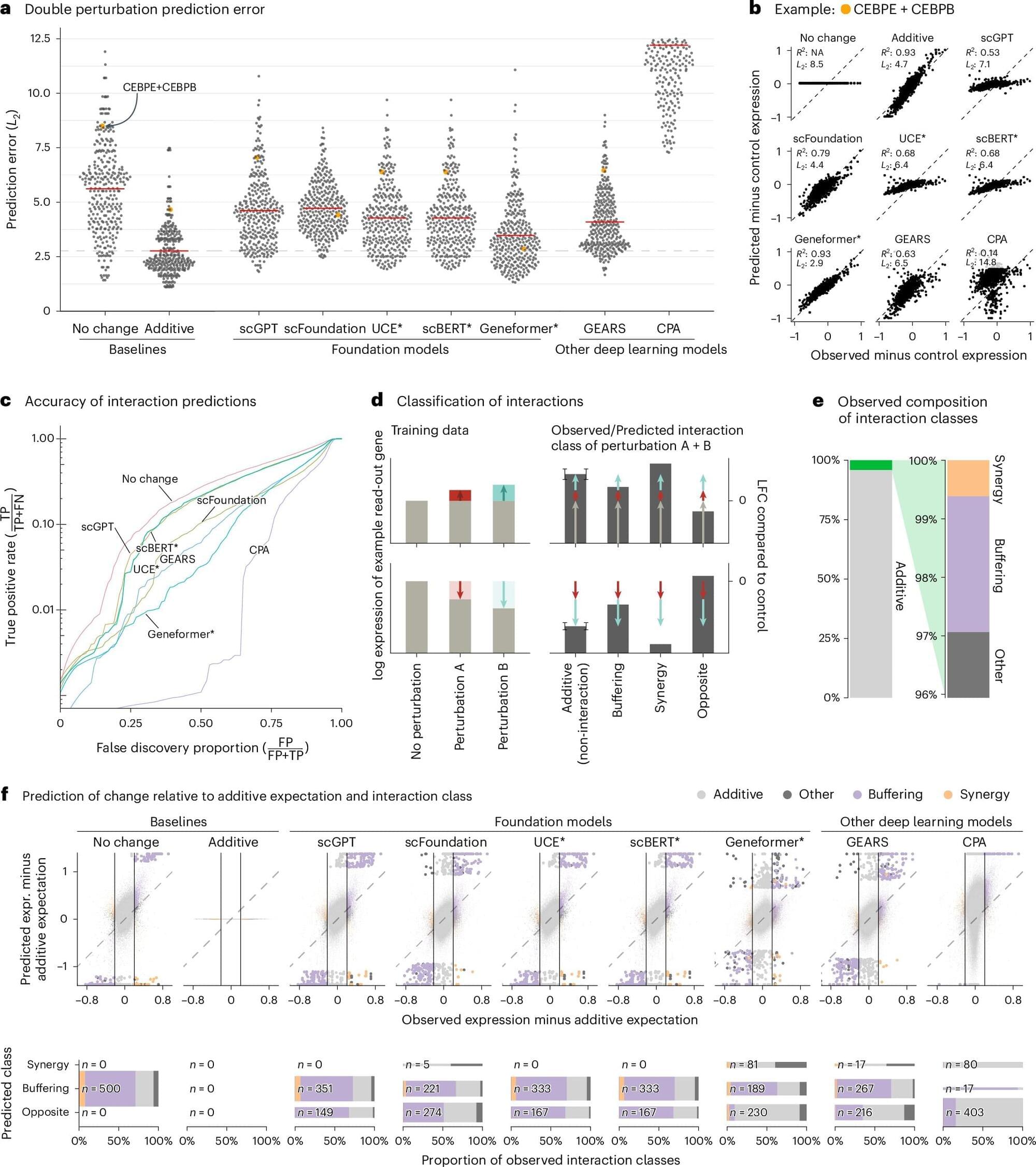

A Death Doula’s Guide to Consciousness After Death with Mayim & Jonathan.
In this powerful and emotional Mayim Bialik’s Breakdown episode, licensed end-of-life counselor and death doula Dr. Martha Jo Atkins explores consciousness after death and what truly happens when we die. Drawing on decades of guiding people through their final moments, she reveals the spiritual, biological, emotional, and psychological changes that occur when consciousness leaves the body—offering profound insights into life after death and the mysteries of the dying process.
You’ll hear jaw-dropping stories of deathbed visions, including dream shifts, visits from deceased loved ones, and shared death experiences where relatives actually feel what the dying person is experiencing. Dr. Atkins shares what she’s witnessed that made her believe in the afterlife, what understanding death can teach us about living, and her own supernatural encounters—from speaking to deceased loved ones in dreams to eerie hospice hauntings.
Dr. Atkins also breaks down:
- Why we’re so afraid to talk about death—and how doing so makes us more human.
- How sensory perception shifts as people begin to let go, and the signs that death is near.
- The difference between a natural death and dying before your time—and what that means for the soul’s journey.
- Could Ketamine-Assisted Psychotherapy help us process grief in healthier ways?
- Why presence matters most in a loved one’s final days.
- How our treatment of elders reflects our values as a society, and why end-of-life care matters deeply.
Plus, Mayim opens up about the raw, painful, yet beautiful experience of caregiving for her father in his final days.
Whether you’re grieving, caregiving, or simply seeking answers to what happens when we die, or wondering what leaves the body when we die, this episode offers rare wisdom and comfort for life’s most inevitable transition.
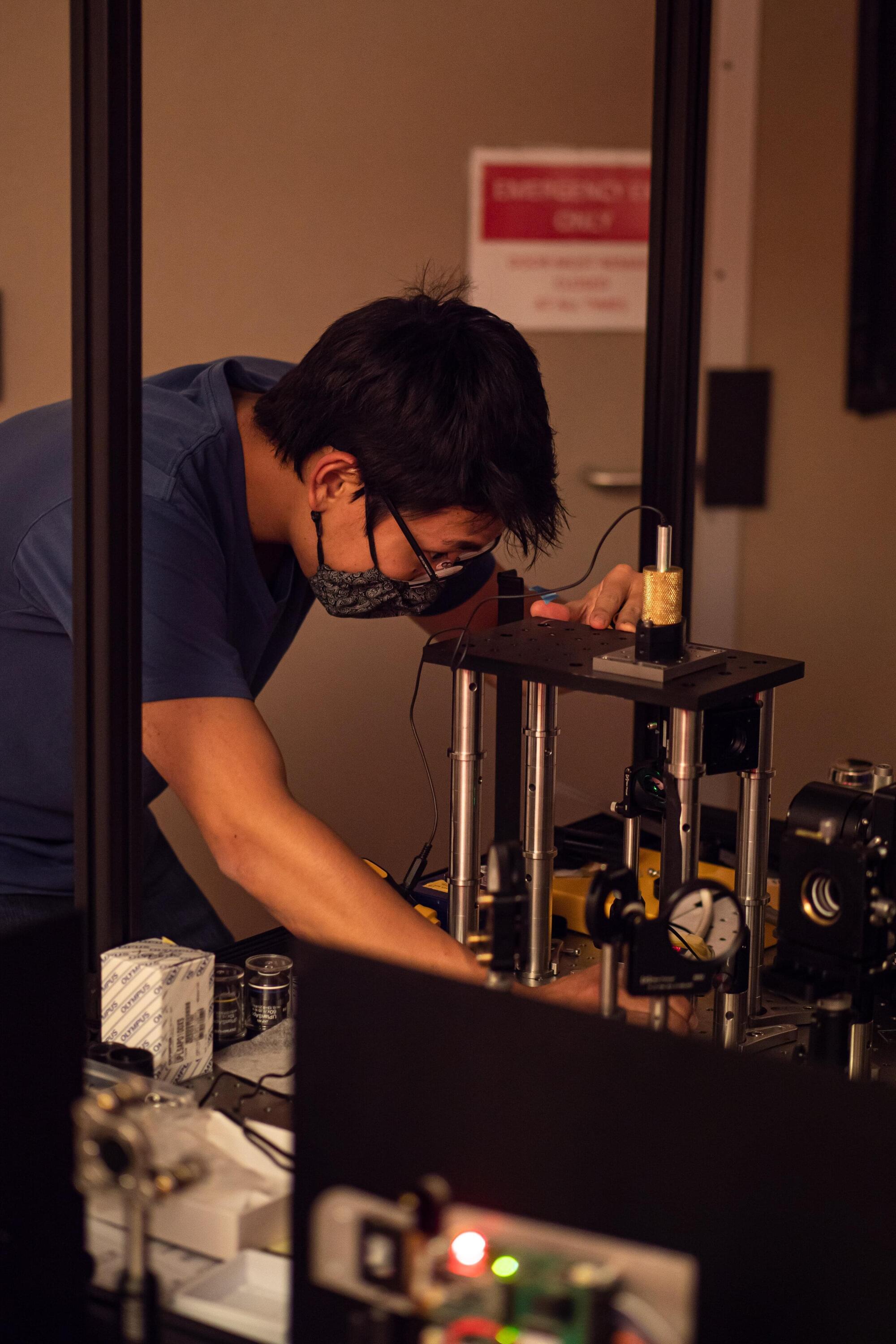
Researchers have developed a high-speed 3D imaging microscope that can capture detailed cell dynamics of an entire small whole organism at once. The ability to image 3D changes in real time over a large field of view could lead to new insights in developmental biology and neuroscience.
“Traditional microscopes are constrained by how quickly they can refocus or scan through different depths, which makes it difficult to capture fast, 3D biological processes without distortion or missing information,” said Eduardo Hirata Miyasaki, who performed the work while in Sara Abrahamsson’s lab at the University of California Santa Cruz (UCSC) and is now at the Chan Zuckerberg Biohub.
“Our new system extends the multifocus microscopy (MFM) technique Abrahamsson developed by using a 25-camera array to push the limits of speed and volumetric imaging. This leap in efficiency opens the door to studying small living systems in motion without disrupting them.”
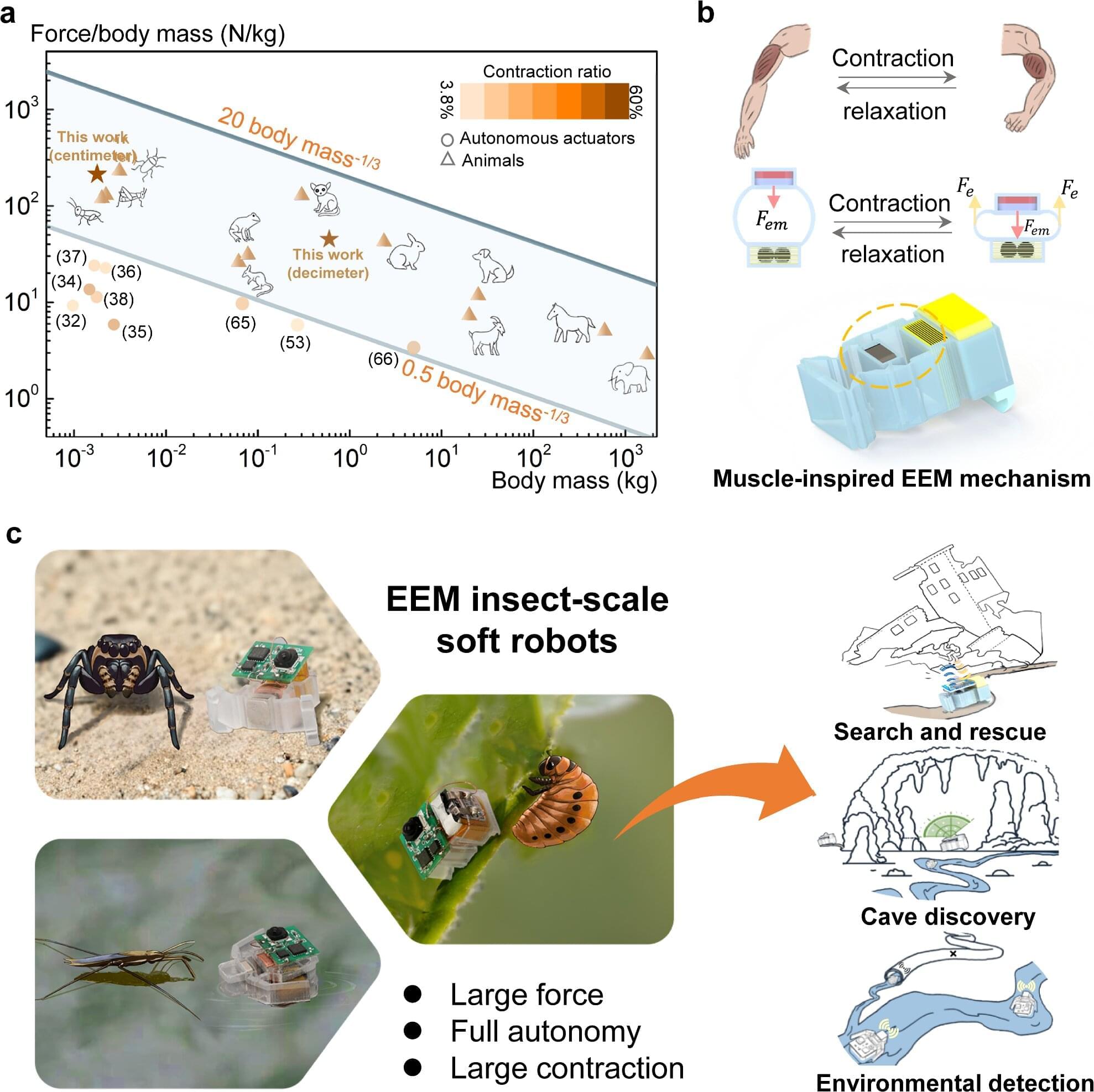
Science frequently draws inspiration from the natural world. After all, nature has had billions of years to perfect its systems and processes. Taking their cue from mollusk catch muscles, researchers have developed a low-voltage, muscle-like actuator that can help insect-scale soft robots to crawl, swim and jump autonomously in real-world settings. Their work solves a long-standing challenge in soft robotics: enabling tiny robots to move on their own without sacrificing power or precision.
Muscles are soft tissues that work by contracting and relaxing to cause movement. Insect muscles are particularly good at this because they are incredibly powerful for their small size. Similarly, actuators are devices that convert mechanical energy into motion.
However, when it comes to robotics, creating tiny, powerful actuators that move with the same agility, precision and resilience as a biological muscle has proved challenging. What’s more, the rigid motors in current robotic systems are difficult to scale down because they easily break.
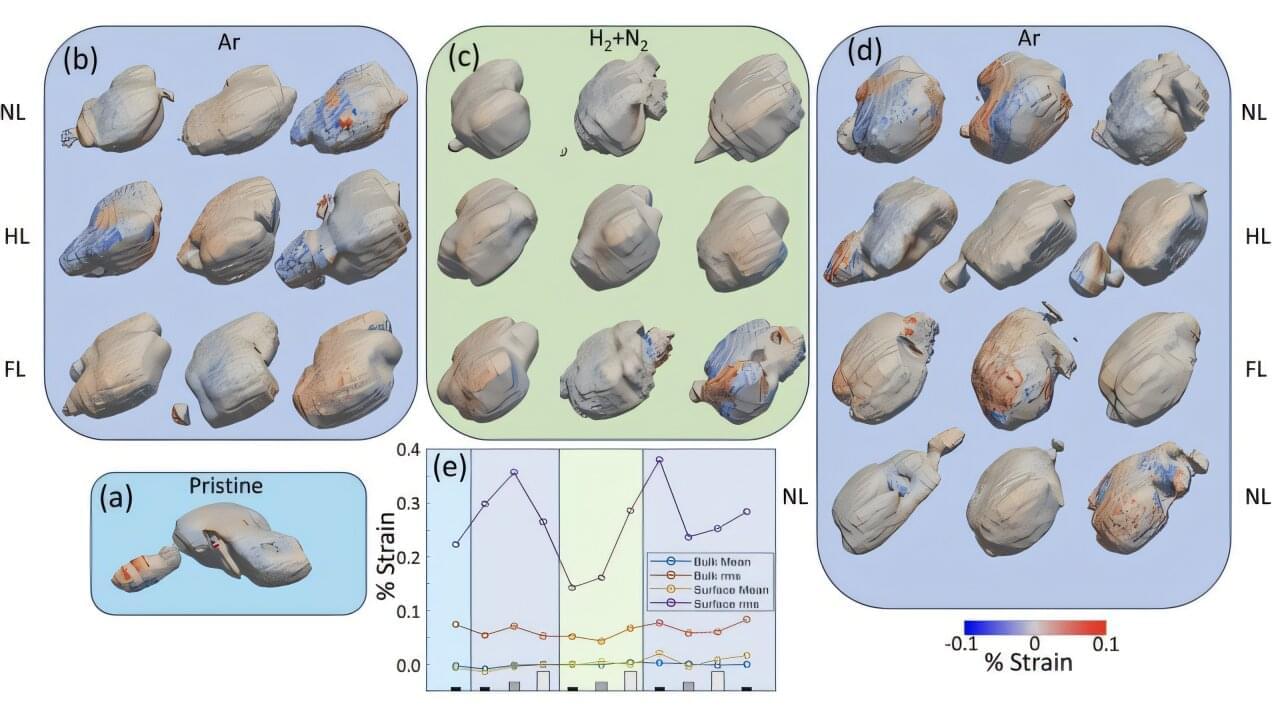
Researchers with the schools of science and engineering at Rensselaer Polytechnic Institute (RPI) are exploring new ways to manipulate matter with light to unlock a new generation of computer chips, photovoltaic cells and other advanced materials.
Physics professor Moussa N’Gom, Ph.D., and materials science professor Edwin Fohtung, Ph.D., have brought together their respective areas of expertise—optics and materials science —to illuminate previously unknown properties of the materials that will build the next generation of consumer, industrial and scientific devices.
“We can use almost the entire spectrum of light, from visible to X-ray, to manipulate and study materials,” Fohtung said. “We can interrogate any system, from hard condensed matter to soft biological tissue.”
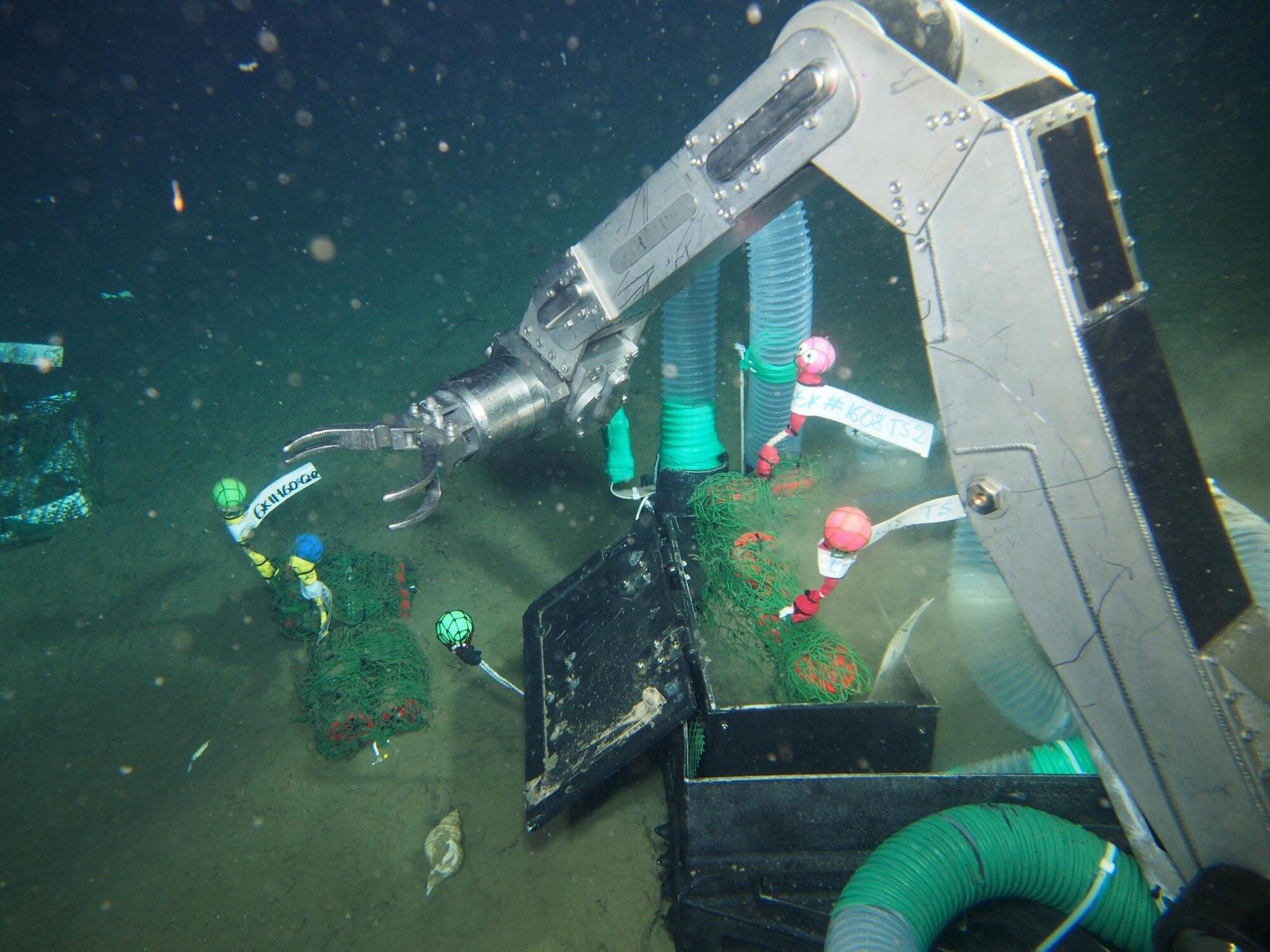
Scientists have unveiled a new biodegradable plastic that vanishes in one of the harshest environments on Earth—the deep sea.
In an experiment nearly 3,000 feet underwater, a bioengineered material called LAHB broke down while conventional plastics stayed intact. Deep-sea microbes not only colonized the plastic’s surface, but actively digested it using specialized enzymes, turning it into harmless byproducts. This breakthrough suggests a promising solution to the global plastic crisis, especially in oceans where most waste lingers for decades or centuries.
Global plastic waste problem still looms.

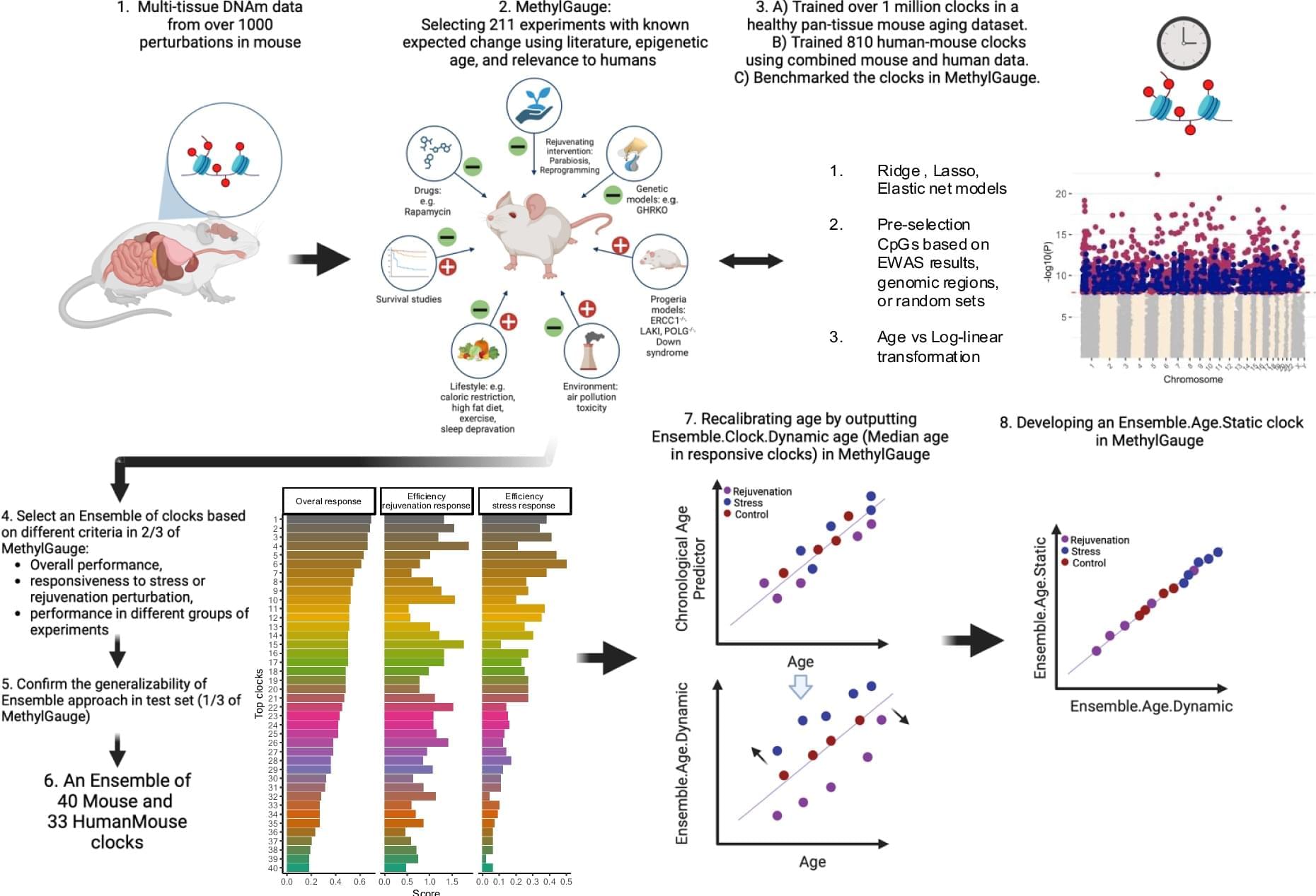
Several widely used epigenetic clocks have been developed for mice and other species, but a persistent challenge remains: different mouse clocks often yield inconsistent results. To address this limitation in robustness, we present EnsembleAge, a suite of ensemble-based epigenetic clocks. Leveraging data from over 200 perturbation experiments across multiple tissues, EnsembleAge integrates predictions from multiple penalized models. Empirical evaluations demonstrate that EnsembleAge outperforms existing clocks in detecting both pro-aging and rejuvenating interventions. Furthermore, we introduce EnsembleAge HumanMouse, an extension that enables cross-species analyses, facilitating translational research between mouse models and human studies. Together, these advances underscore the potential of EnsembleAge as a robust tool for identifying and validating interventions that modulate biological aging.
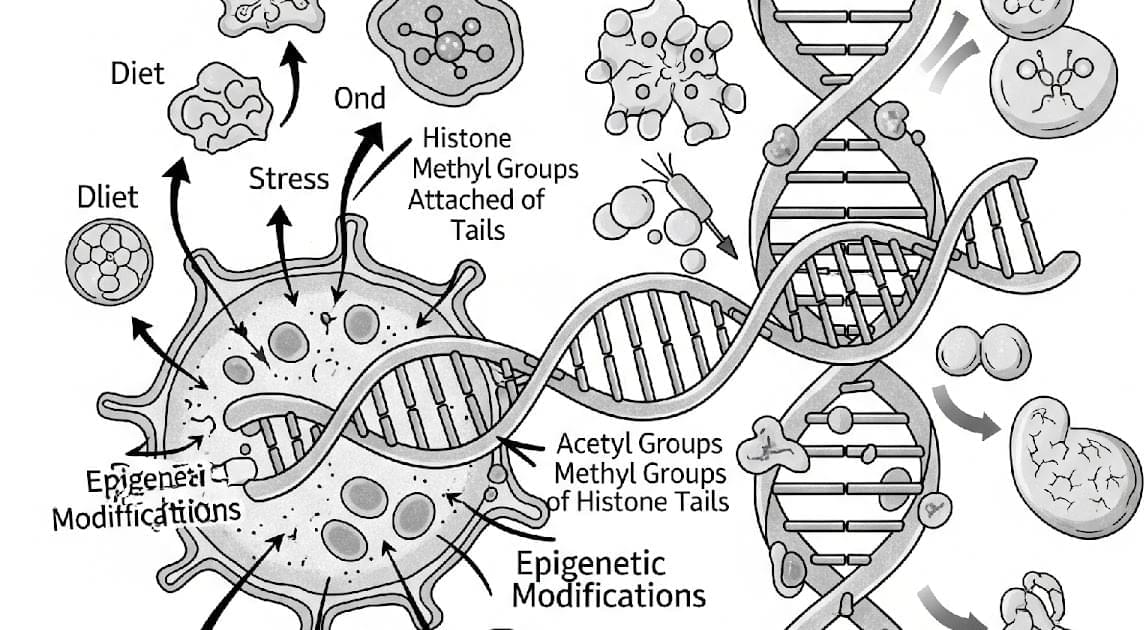
The field of evolutionary biology has a rich and complex history, marked by periods of consensus and significant theoretical shifts. The cornerstone of modern evolutionary thought for much of the 20th century was the Modern Synthesis (MS), a theoretical framework that integrated Darwin’s theory of natural selection with Mendelian genetics.
It provided a powerful and elegant explanation for how evolution occurs, emphasizing the gradual accumulation of genetic mutations and their differential survival in a population. However, in recent decades, a growing body of evidence has begun to challenge the sufficiency of the MS, leading to the development of a new, more comprehensive framework: the Extended Evolutionary Synthesis (EES).

Magnetism plays a pivotal role in many biological systems. However, the intensity of the magnetic forces exerted between magnetic bodies is usually low, which demands the development of ultra-sensitivity tools for proper sensing. In this framework, magnetic force microscopy (MFM) offers excellent lateral resolution and the possibility of conducting single-molecule studies like other single-probe microscopy (SPM) techniques. This comprehensive review attempts to describe the paramount importance of magnetic forces for biological applications by highlighting MFM’s main advantages but also intrinsic limitations. While the working principles are described in depth, the article also focuses on novel micro- and nanofabrication procedures for MFM tips, which enhance the magnetic response signal of tested biomaterials compared to commercial nanoprobes. This work also depicts some relevant examples where MFM can quantitatively assess the magnetic performance of nanomaterials involved in biological systems, including magnetotactic bacteria, cryptochrome flavoproteins, and magnetic nanoparticles that can interact with animal tissues. Additionally, the most promising perspectives in this field are highlighted to make the reader aware of upcoming challenges when aiming toward quantum technologies.